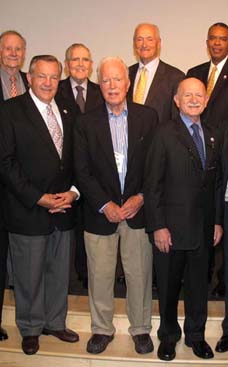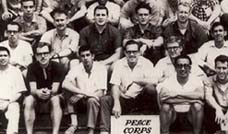2011.10.22: October 22, 2011: Former Uganda Country Director J. Larry Brown writes: What is the Future of the Peace Corps?
Peace Corps Online:
Directory:
Uganda:
Peace Corps Uganda :
Peace Corps Uganda: Newest Stories:
2011.10.22: October 22, 2011: Former Uganda Country Director J. Larry Brown writes: What is the Future of the Peace Corps?
Former Uganda Country Director J. Larry Brown writes: What is the Future of the Peace Corps?
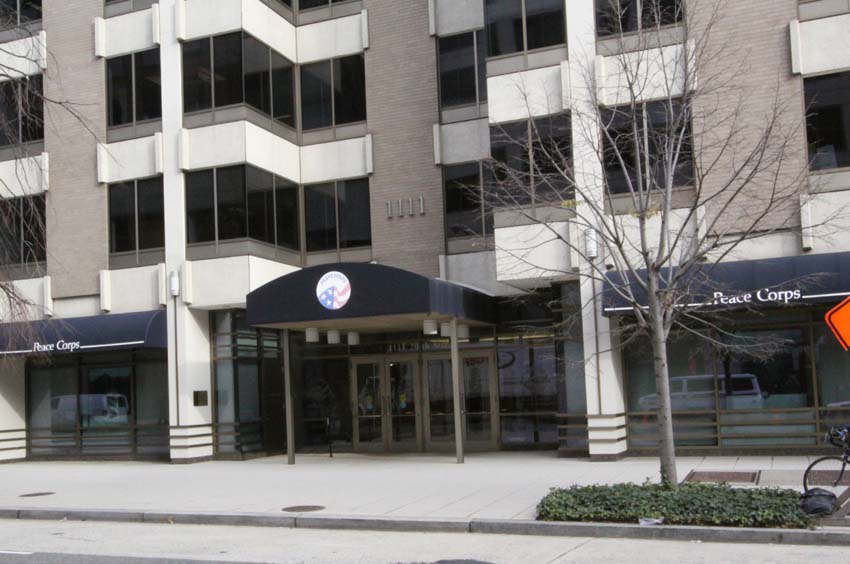
What of the future of the Peace Corps? As it celebrates its 50th anniversary since its creation by John F. Kennedy, it is an auspicious time to ask: What will Peace Corps be fifty years from now? Indeed, what will it be five years from now? Peace Corps today is a highly centralized, rigid program unbecoming of its history and purpose. It has become too costly, too slow and too top-down. It has lost much of its vigor, creativity and cutting-edge ideals. Once John Kennedy's best idea, Peace Corps is now another government bureaucracy: it means well and does many good things, but its Volunteers usually manage to do them despite what the agency has become. The key signs of Peace Corps' stodginess are its staffing and per Volunteer expenditures. My program in Uganda, the largest in Africa at the time, had 165 Volunteers. To service them, I had a total of 31 staff, or about one staff person for every five Volunteers. This is an exceptionally high staff ratio, yet I fought vigorously to add more staff. Why? Because of all the top-down bureaucratic requirements coming out of Peace Corps Washington, it simply was not possible to do all we were required to do at post with the staff we had. More than half of our time was spent servicing the demands of the Washington bureaucracy rather than facilitating Volunteers' efforts to help Ugandan peasants achieve more productive lives.
Former Uganda Country Director J. Larry Brown writes: What is the Future of the Peace Corps?
Toward the Future
by J. Larry Brown
The weeks following my dismissal and return home soon turned into months and then the milestone of a year and more. All of the Volunteers who served under me in Uganda have now returned to the U.S., many to continue their graduate studies. I know, because I still crank out letters of recommendation for many of them. When they organized to protest my firing, I encouraged them all to carry on, and they did. I also promised them that "once your CD, always your CD", and many of them have taken up the offer, seeking my advice not only with grad school decisions but also job recommendations and career choices. Even to this day I regularly hear from a number of them.
I also hear occasional news from both Uganda and Washington. Lynn Foden is still in her position, having been retained by President Obama's newly-appointed Director, Aaron Williams. Bureaucracies do not easily disgorge civil servants, even though Ron Tschetter blamed himself for letting her continue on while he had been in office. After I left Uganda, Foden ordered that the bead project money raised by the village women under Marney's leadership be turned over to Vince. She preferred to take the precious $10,000 that the women wanted to use for a community project and give it to Vince, rather than to stand up to his blustery threats. It was yet another example of how peasants come last.
In the months following our abrupt departure from Uganda I had ample advice offered to me as well: Sue the Peace Corps, seek a Congressional inquiry, go to the press with the story. When it became clear that Aaron Williams, the once-promising new director appointed by President Obama, was a tired public servant afraid to address problems within the bureaucracy he inherited, I seriously considered all of the advice I had received from friends in and out of government. But each of these ideas had serious downsides, chief among them being that I would not be getting on with the future, neither for myself nor my family. So I decided to accept a new job offer and then write this book, for me the best of both worlds.
Judi and I now live in the Middle East, in the ancient and beautiful country of Oman, where we run an American higher education program that hosts college students for study abroad, and grants Masters degrees to graduate students. It is a highly rewarding endeavor, particularly to see the changes that come about in a short time in the lives of young Americans as they realize that their preconceived images of that region of the world are quite limited, usually wrong. And it is especially rewarding for Judi and me to "have our kids back," to again have dozens of young people around us, sleeping in our house and seeking to do good things in the world. It's not Uganda, to be sure, but it is our future and we love it.
What of the future of the Peace Corps? As it celebrates its 50th anniversary since its creation by John F. Kennedy, it is an auspicious time to ask: What will Peace Corps be fifty years from now? Indeed, what will it be five years from now?
It sort of surprised me that I never became angry with Peace Corps. I never wanted to do it harm. I attributed the pain of the experience to a few bad eggs-rigid bureaucrats who were threatened by country directors who were independent-minded and who asked questions. But my strong feelings for the concept of Peace Corps and public service never wavered. So strongly, in fact, do I still believe in the Peace Corps that I have given the future of the organization a lot of thought based on my years of experience with the agency.
Not being a scholar of bureaucratic misalignment, I cannot say whether the top-down stodginess of Peace Corps today is a natural phenomenon or an aberration. I suspect that it is a bit of both. Bureaucracies find ways every day to require more and more detail not necessarily germane to their central purposes. International programs also frequently distrust the people they hire to run their field office and, instead, seek to dictate to them every step of the way, even from thousands of miles away. Clearly this is Peace Corps today.
But the organization also is micro-managed by Congress, required to provide detailed reports on all sorts of silliness: how many people a Volunteer works with in the course of a year, the number of new businesses a Volunteer facilitates, as if building the lives and capacities of human beings is as simple as counting such numbers. It's like forcing parents to keep a record of how many times they hug their children, as if the number measures the quality of the love. And add to such silliness that administrations of both parties also demand reports and budgetary analyses that require the bureaucracy to spend more and more time on things that are not at all central to the Peace Corps mission in the field.
As a result, Peace Corps today is a highly centralized, rigid program unbecoming of its history and purpose. It has become too costly, too slow and too top-down. It has lost much of its vigor, creativity and cutting-edge ideals. Once John Kennedy's best idea, Peace Corps is now another government bureaucracy: it means well and does many good things, but its Volunteers usually manage to do them despite what the agency has become.
The key signs of Peace Corps' stodginess are its staffing and per Volunteer expenditures. My program in Uganda, the largest in Africa at the time, had 165 Volunteers. To service them, I had a total of 31 staff, or about one staff person for every five Volunteers. This is an exceptionally high staff ratio, yet I fought vigorously to add more staff. Why? Because of all the top-down bureaucratic requirements coming out of Peace Corps Washington, it simply was not possible to do all we were required to do at post with the staff we had. More than half of our time was spent servicing the demands of the Washington bureaucracy rather than facilitating Volunteers' efforts to help Ugandan peasants achieve more productive lives.
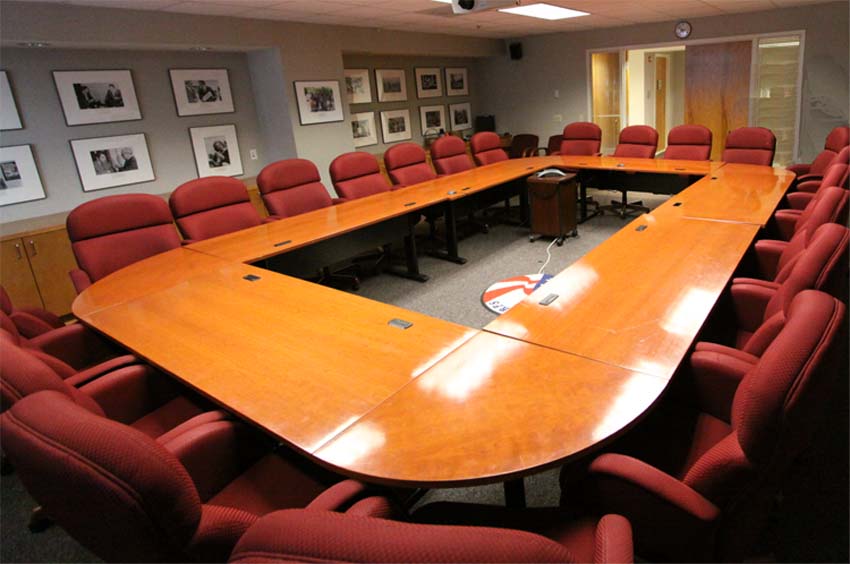
The appetite of the Washington bureaucracy was voracious: demands, constant demand for reports, updates, analyses, surveys, budgets and quarterly planning. Four of my staff fed fiscal information to Washington on a full-time basis; two others spent their time complying with Washington's requirements regarding security measures; six staff transported Volunteers according to specified Washington rules; three rendered medical care; and many of the rest of us spent at least half our time, usually more, responding to demands for planning documents, budget reports, statistical data and silly details like how many villagers each Volunteer talks to in a day. I also had to actually count each of the pills dispensed by my medical officers each month, and I also was instructed to count thousands of schillings, one-by-one, in my cashier's office each month-hardly a strategic use of the time of the director of a development organization.
This bureaucratization of Peace Corps is reflected in its average expenditure for each Volunteer. For an agency whose recruits essentially work free of charge, it is revealing that the average per-Volunteer expenditure is $52,000 a year. If you divide the total Peace Corps budget of $400 million by the number of Volunteers, it costs this much to place and keep each one of them in the field. Is this a lot, you might ask? The answer is yes: it essentially is equivalent to the median annual household income in the U.S. today. In other words, to send a young volunteer to serve in Peru costs about the same as it does for an entire family to live for the same period of time in the U.S.
Some will argue, with merit, that the money for Peace Corps is worth it. After all, for less than half a billion dollars a year our nation helps poor countries tackle basic infrastructure needs, builds good will and learn about the rest of the world in the process. In an era of big spending on defense and other military endeavors, this is a paltry price to pay for such a positive yield. But, of course, the counter to this argument is that we can get an even bigger pay-off through better utilization of the relatively small budget that Peace Corps receives. Moreover, the issue here is not the size of the Peace Corps budget itself, but its per-Volunteer costs. The high figure is reflective of the huge bureaucratic overload that has been piled on top of the once lean and feisty organization that Sargent Shriver created to achieve John Kennedy's dream.
The result is that the Peace Corps today lost its frontier spirit on the path to becoming another Washington bureaucracy. It no longer enables Volunteers simply to go to other countries to do good-to be creative and innovative, or to be sick and fail. Instead the organization has become en loco parentis to all its Volunteers, a huge parental figure that seeks to provide for every need, tell every volunteer what to do and how to behave, and oversee virtually every aspect of the work of its professional field staff. This is why every Volunteer, essentially working for free, has $52,000 in bureaucratic gobbledygook behind her.
What can be done to re-vamp the Peace Corps "at fifty years and for another fifty"? How can its bureaucracy be reduced, its autocratic Washington-driven focus reigned in, and its spirit and creativity revitalized? Better yet, how can all this be done while getting more return on the per-Volunteer investment?
The Peace Corps needs a new suit. Its core purposes should remain virtually unchanged, but it needs to be freed from the constraining garments in which it has become cloaked. To put this concept in organizational terms, the fundamental structure of Peace Corps Washington needs to be refurbished, and a leaner structure created in its place. Peace Corps should no longer be an agency where every need of every Volunteer purportedly is overseen by the agency. It should no longer be an agency that tries to govern essentially every aspect of the lives of Americans who volunteer to serve. It should no longer stifle ideas and limit the creative impulses of its country directors.

I don't have the full answer about how to re-build Peace Corps, perhaps no one person does. But the subject does deserve immediate and intensive debate. And many ideas need to be vetted. One, for example, is to restructure Peace Corps as a grant-making agency that supports Americans with innovative ideas who wish to study and work overseas. Volunteers coming through such a process would be more independent. They also would be much more responsible for their own successes and failures, and for their own well-being and care. And they would cost a lot less on a per capita basis. The nation already has a model much like this. Like the Peace Corps, the Fulbright Program enables Americans to live and work overseas. Established by Congress in honor of former U.S. Senator J. William Fulbright, it is not a full-service, in-house entity like Peace Corps. In 2008, for example, the Fulbright Program funded 6,000 Americans to work overseas for a year, serving in a total of 155 countries, about twice as many countries as Peace Corps serves. But because Fulbright does not provide the full support package that Peace Corps does-and because Fulbright does not have the overblown bureaucracy that Peace Corps does-its per- person costs are $32,000. This is $20,000 per person less than Peace Corps.
As writer Charles Kenny has suggested in a 2011 article for The Center for Global Development, going to a grant model not only would lessen Peace Corps' bloated bureaucracy, but it also could vastly expand the number of countries in which Americans serve, as well as expanding the range of activities in which they engage. And by reducing the grant size to $20,000 below that of Peace Corps now, the number of Volunteers that Peace Corps fields could go up more than 35%-- with no additional taxpayer investment.
If the grant-model is adopted for the Peace Corps by the President and Congress, its benefits could be swift in coming: a revitalized agency stripped clean of its immobilizing fat, and a more democratized agency freer of bureaucratic dictates and driven more by Volunteer innovation on the ground. It also would mean more Volunteers in more countries at much less the cost. To be sure, this is not the only reform model for Peace Corps; others surely exist. But the essential thing is that this agency, with its unique mission and all that it offers to both America and the rest of the world, is too important to remain stifled under the weight of a bureaucracy that has grown over recent decades to now entangle it.
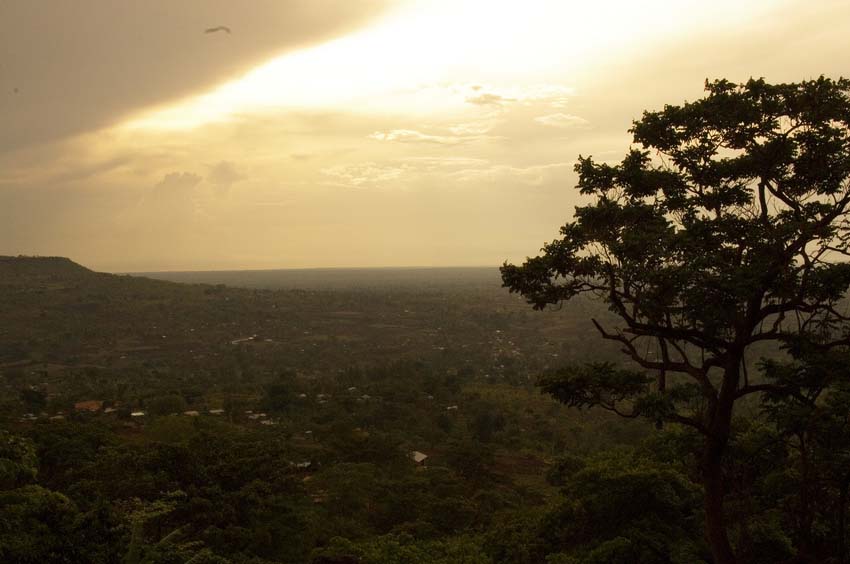
I have been lucky to be a part of this unique government institution several times during its first fifty years. I believe that the Peace Corps represents the best of our nation-- a highly valuable and noble commitment from the American people to the rest of the world. But it desperately needs to be saved and revitalized for the future. If this happens an aging Harvard professor might even join it once again.
About the Book
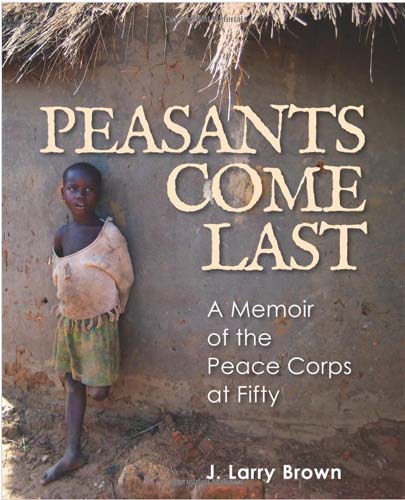
In the tradition of popular activist scholars like Carl Sagan and Stephen Jay Gould, J. Larry Brown has spent decades linking the findings of science to the realities of human existence. He gives us a candid look at what it means to try to do good things in a harsh world. We are taken to the make-shift huts of refugees driven from their homes by the insane barbarism of the Lord's Resistance Army. We stand with Brown where Livingstone once stood, at Murchison Falls overlooking the powerful Nile filled with hippos and crocodiles. We see the grinding lives of people who eat the same meal every day. But of all the obstacles faced by Brown and his colleagues, none is as nonsensical as the tone-deaf dealings of Washington. We see how the needs of peasants come last when the realities of their lives are no match for the machinations of Washington's rigid routines.
Purchase the book at Amazon.
About the Author
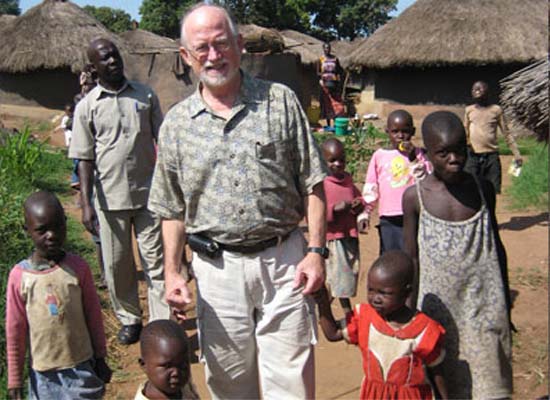
Serving many years on the faculty of the Harvard School of Public Health, Dr. J. Larry Brown riveted national attention to the existence of hunger in America in the 1980's, when he led a team of prominent doctors on field investigations into twenty-five states. The founding director of the Center on Hunger and Poverty, Brown also founded the Feinstein Famine Center and the Institute on Assets and Social Policy. Dr. Brown chaired the board of Oxfam America, and also chaired the medical task force of USA for Africa and Hands Across America. He is the author of numerous articles in both lay and scientific journals, such as Scientific American and Encyclopedia Britannica, and several books including Living Hungry in America. He has appeared often on national television including CNN, Good Morning America, Today Show, and network news programs, and testifies frequently before Congress. A young Peace Corps Volunteer in rural India in the late 1960s, Brown later served under President Carter as Assistant Director of the Peace Corps. He recently served a stint as Country Director for the Peace Corps in Uganda, and now resides with his wife, Judi Garfinkel, in Oman, where they head programs for World Learning/SIT.
Links to Related Topics (Tags):
Headlines: October, 2011; Peace Corps Headquarters; Criticism; Country Directors - Uganda; Speaking Out; Peace Corps Uganda; Directory of Uganda RPCVs; Messages and Announcements for Uganda RPCVs
When this story was posted in October 2011, this was on the front page of PCOL:
Peace Corps Online The Independent News Forum serving Returned Peace Corps Volunteers 








 | Peace Corps: The Next Fifty Years
As we move into the Peace Corps' second fifty years, what single improvement would most benefit the mission of the Peace Corps? Read our op-ed about the creation of a private charitable non-profit corporation, independent of the US government, whose focus would be to provide support and funding for third goal activities. Returned Volunteers need President Obama to support the enabling legislation, already written and vetted, to create the Peace Corps Foundation. RPCVs will do the rest. |
 | How Volunteers Remember Sarge
As the Peace Corps' Founding Director Sargent Shriver laid the foundations for the most lasting accomplishment of the Kennedy presidency. Shriver spoke to returned volunteers at the Peace Vigil at Lincoln Memorial in September, 2001 for the Peace Corps 40th. "The challenge I believe is simple - simple to express but difficult to fulfill. That challenge is expressed in these words: PCV's - stay as you are. Be servants of peace. Work at home as you have worked abroad. Humbly, persistently, intelligently. Weep with those who are sorrowful, Care for those who are sick. Serve your wives, serve your husbands, serve your families, serve your neighbors, serve your cities, serve the poor, join others who also serve," said Shriver. "Serve, Serve, Serve. That's the answer, that's the objective, that's the challenge." |
Read the stories and leave your comments.

Some postings on Peace Corps Online are provided to the individual members of this group without permission of the copyright owner for the non-profit purposes of criticism, comment, education, scholarship, and research under the "Fair Use" provisions of U.S. Government copyright laws and they may not be distributed further without permission of the copyright owner. Peace Corps Online does not vouch for the accuracy of the content of the postings, which is the sole responsibility of the copyright holder.
Story Source: Peace Corps Online
This story has been posted in the following forums: : Headlines; Headquarters; Criticism; Country Directors - Uganda; Speaking Out; COS - Uganda
PCOL47505
71
When Larry Brown gets through with his stunning
revelations to the public, that is, putting facts into a credible and needed book, there is still my website to be contended with; the one Bush Administration confiscated twice AND inbetween those times being cut off from parts of PCOL and use of its email, and Google still denying my use of SEARCH within PCOL because I
"might" use it to generate multiple copies which
I've never done... never thought of.
The Big Trek.info. It concerns my bout with Falciparum malaria not described in Peace Corps trainings stateside, nor in my host country, nor in the Peace Corps Medical Manual WHERE THERE IS NO DOCTOR 1986 by Werner.
Falciparum now is mentioned in the CDC website thanks in part to Yours Truly but I have not seen a website anyplace which describes it wholly or accurately if at all. Merck Manuol used to but has been disconinued.
I was left for dead after being dumped back
in USA. My Republican Senator Herbert Bateman
said I would have to sue to be heard. Then I was
blamed.
Most of my website is a journal which has been added to throughout the years and is not in
order. The above mentioned accounting starts with AFTERWARD, then chapter six with more
documents at the end; chapter seven, and
finally UPDATE 2011 which includes Peace Corps letters of interest.
Lastly, there is still the matter of MURDER IN THE PEACE CORPS, search by that name, which
happned ten years before my case.
Whatever do Peace Corps personnel think we joined for?















